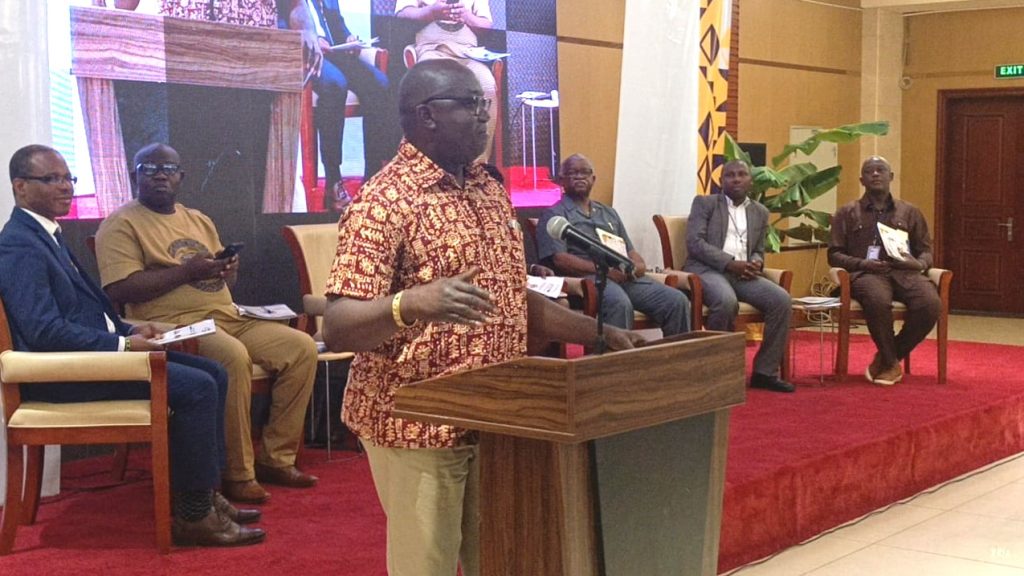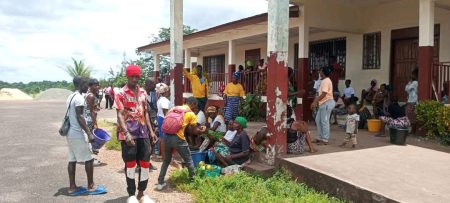The Liberia Medicine and Health Regulatory Authority (LMHRA) has announced its intention to establish a state-of-the-art quality control laboratory in Careysburg, Montserrado County. Director General, Dr. Luke Bawo, revealed that the LMHRA is in the final stages of negotiating a Public-Private Partnership (PPP) agreement to facilitate the modernization of this crucial facility. This announcement was made during his address at the opening ceremony of the 10th Anniversary celebration of the Celebrate Lab @West Africa Conference 2025. Themed “Propelling Our Professionals Into the Future of Now,” the conference brought together a diverse assembly of national and international health professionals, researchers, and innovators. In addition to the laboratory construction, Dr. Bawo also highlighted the LMHRA’s plans to implement advanced technologies for tracking health commodities and streamlining routine processes. This multifaceted approach underscores the LMHRA’s commitment to enhancing healthcare infrastructure and capabilities within Liberia.
Dr. Bawo emphasized the significance of the conference, highlighting its role as a platform for fostering transformative ideas and collaborations that can shape the future of laboratory science. He stressed the importance of positioning laboratories at the forefront of scientific discovery, enabling them to provide critical data and insights that drive progress in healthcare, public safety, and environmental sustainability. He acknowledged the critical role laboratories play in supporting drug regulatory authorities (DRAs) by ensuring the safety, efficacy, and quality of pharmaceuticals throughout their entire lifecycle. He then proceeded to detail the crucial functions that laboratories perform in supporting regulatory oversight.
These laboratory functions, as outlined by Dr. Bawo, encompass several key areas. First, laboratories conduct rigorous testing on raw materials, intermediate products, and finished drug formulations to guarantee adherence to specified quality standards. This data is then used by DRAs in their product quality assessments. Second, stability studies conducted by laboratories provide important information on shelf life and ideal storage conditions for drugs, crucial information for regulatory approval.
Third, laboratories actively contribute to clinical research by generating comprehensive data on the safety and efficacy of new drugs during clinical trials, which is submitted to DRAs for evaluation. Fourth, the development and validation of analytical methods by laboratories are essential for producing reliable and reproducible data to support regulatory filings. Fifth, adherence to Good Laboratory Practice (GLP) ensures that laboratories operate in compliance with established standards, building trust and providing DRAs with the necessary documentation.
Further emphasizing the integral role of laboratories, Dr. Bawo highlighted their work in maintaining meticulous records and reports of laboratory tests, which allow DRAs to verify compliance with all regulatory mandates. Laboratories also contribute to pharmacovigilance by monitoring and reporting adverse effects and other safety concerns related to marketed drugs, thereby supporting DRAs in improving post-market surveillance. They can also partner with DRAs in research initiatives that address public health issues, contributing valuable data to assessments of drug efficacy and safety in real-world settings. These various functions underscore the vital role laboratories play in upholding pharmaceutical quality and safety, supporting public health, and contributing to scientific advancement.
Beyond the mentioned functions, Dr. Bawo acknowledged the broader contributions of laboratories to supporting drug regulatory authorities. He highlighted areas such as batch testing, capacity building, and skill development as further examples of the crucial role laboratories play in the healthcare ecosystem. This multifaceted engagement extends the impact of laboratory work beyond routine testing and into vital areas like training and professional development, further strengthening the overall healthcare system.
Dr. Bawo concluded his remarks by expressing his anticipation for a fruitful and engaging symposium, emphasizing its potential to broaden perspectives and forge stronger connections within the laboratory community. His address served to highlight the LMHRA’s commitment to advancing laboratory science in Liberia and the crucial role of rigorous laboratory practices in ensuring public health and driving scientific progress. The planned construction of the new quality control laboratory and implementation of new tracking technologies signal a significant investment in Liberia’s healthcare infrastructure and a dedication to improving healthcare outcomes.
The conference itself served as a testament to the growing importance of laboratory science in West Africa and globally, showcasing the collaborative efforts underway to enhance laboratory practices and research. By bringing together experts from various fields, the conference facilitated the exchange of knowledge and ideas, paving the way for innovation and advancements in laboratory science. The emphasis on propelling professionals into the future of now highlights the need for continuous learning and adaptation in a rapidly evolving field. The discussions and partnerships forged during this conference will undoubtedly play a crucial role in shaping the future trajectory of laboratory science and its impact on public health.














